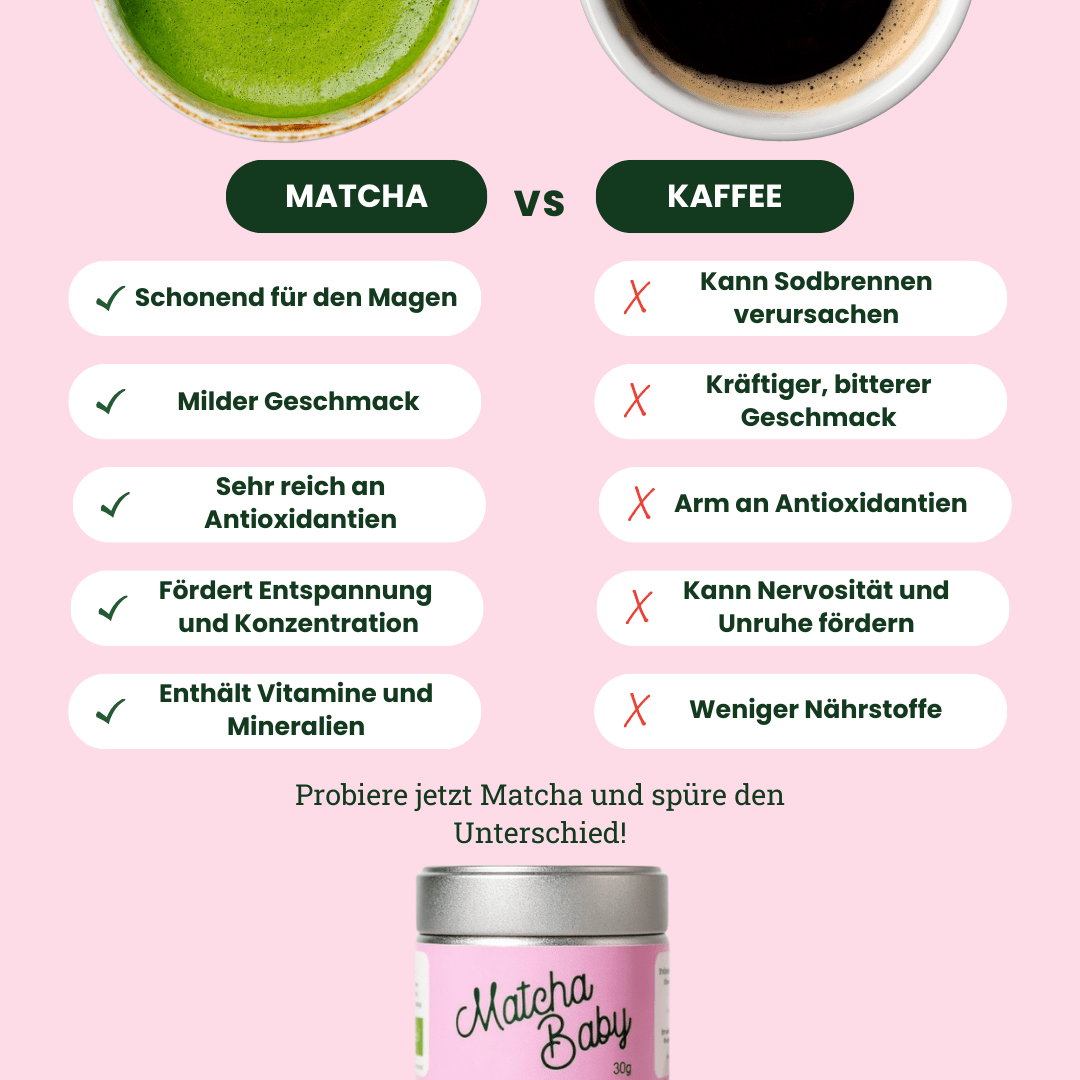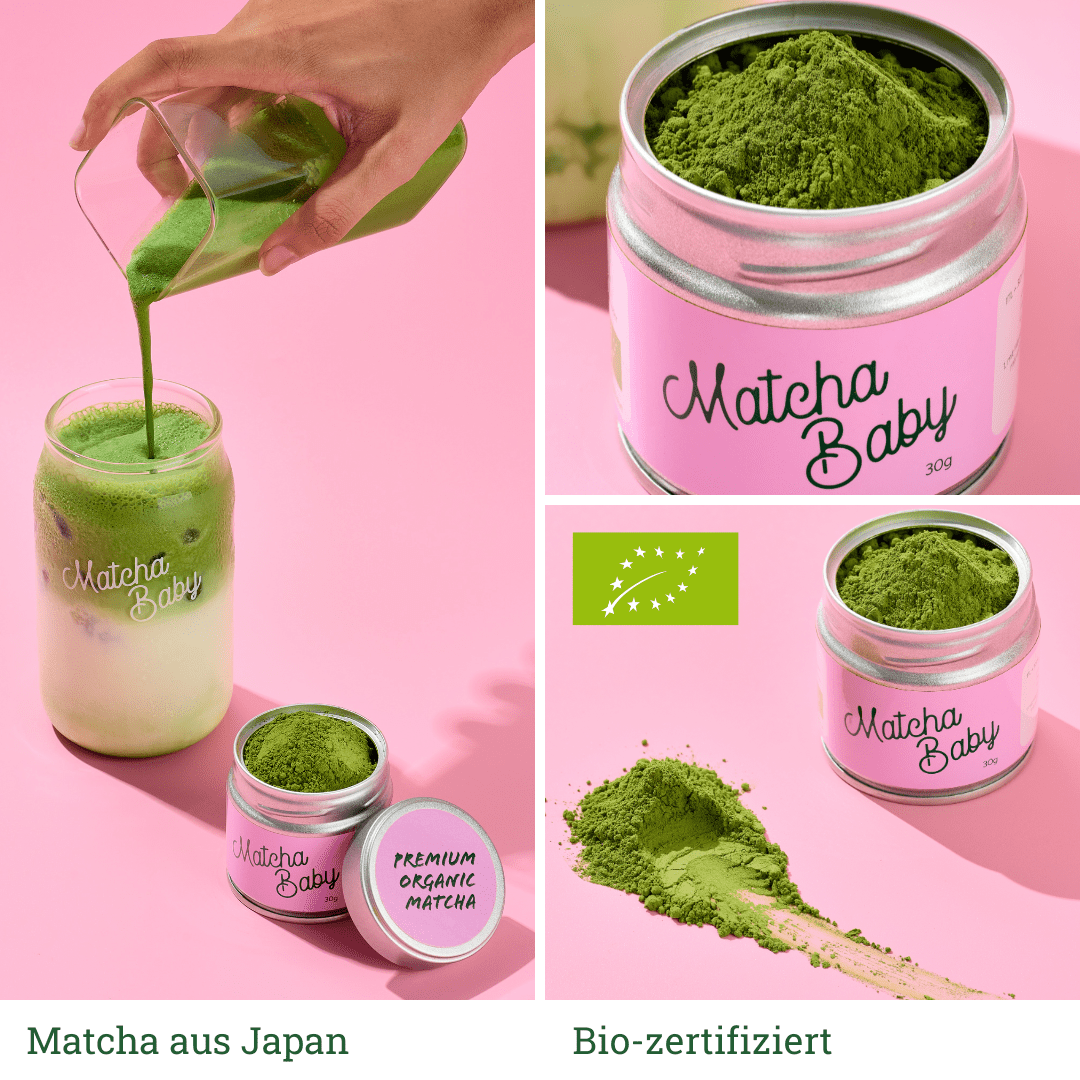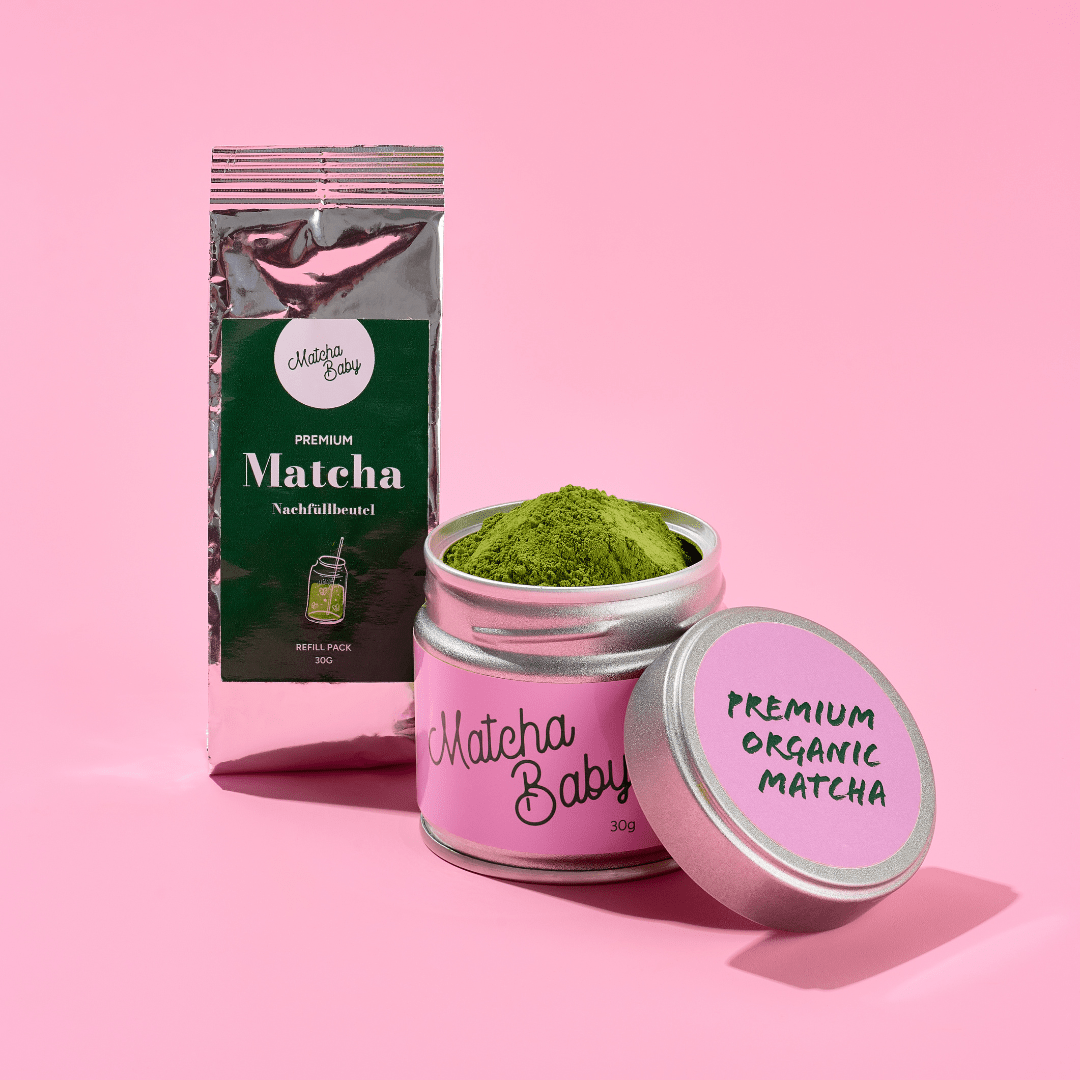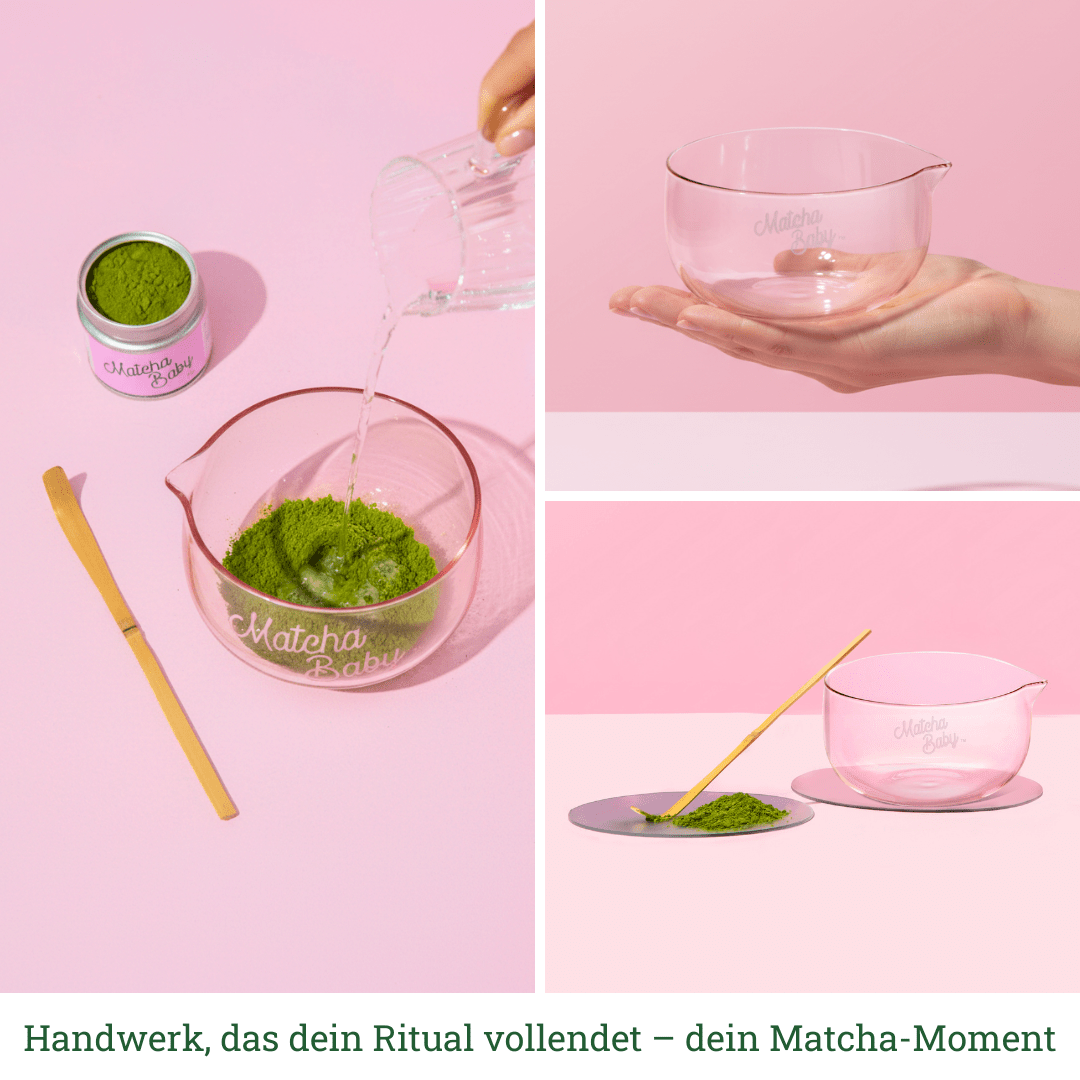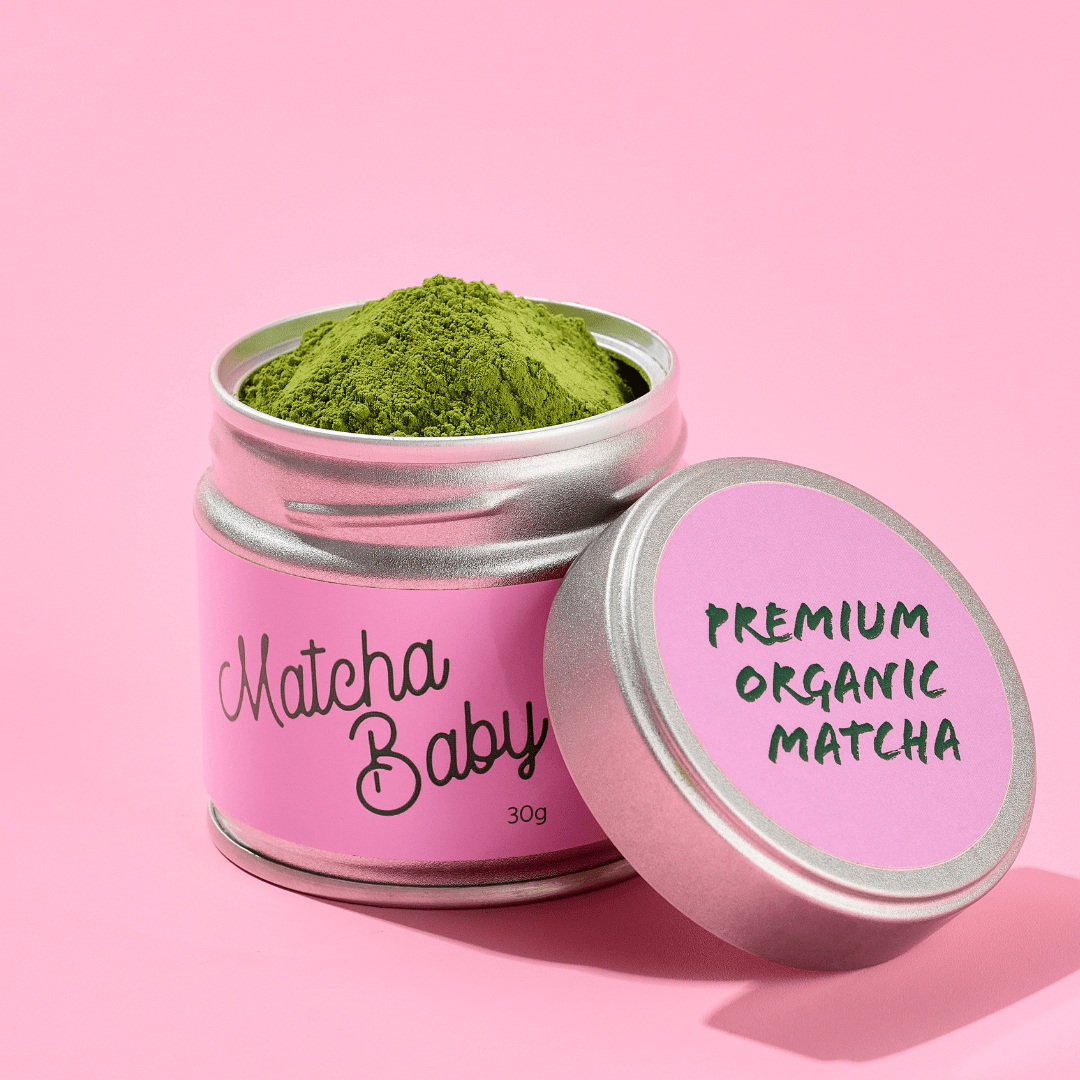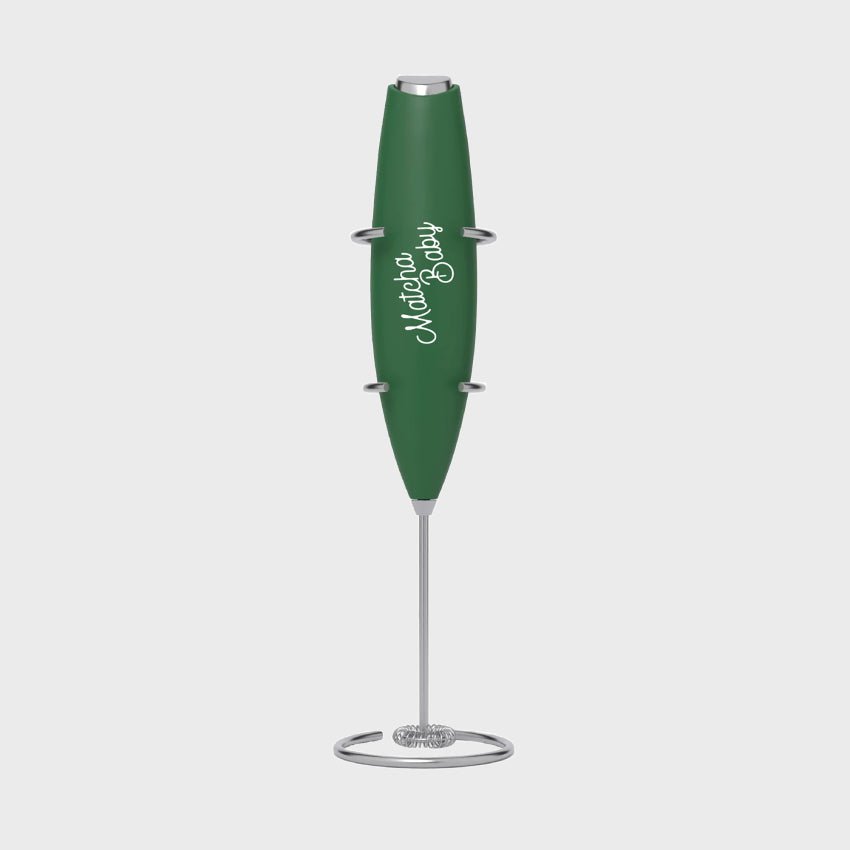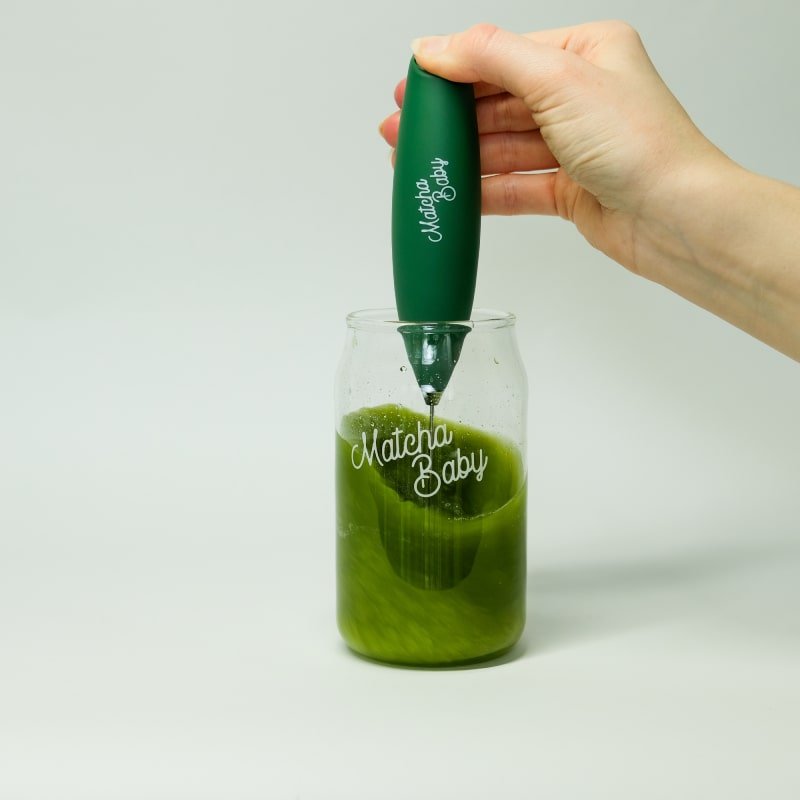Matcha tea side effects
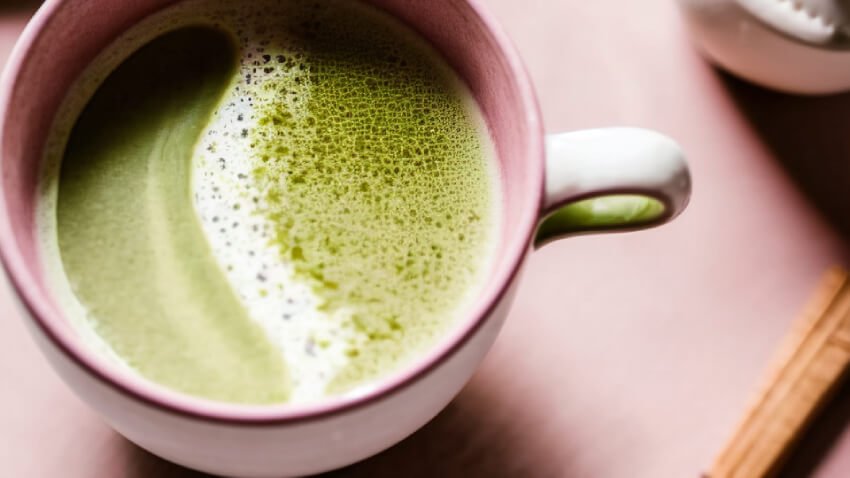
Matcha Tea: Benefits & Side Effects
Matcha tea is a popular beverage known for its health benefits. The green powder is often touted as a natural energy booster and concentration aid. However, like many foods and beverages, matcha tea also has side effects you should be aware of. In this article, we'll explore the potential side effects of matcha and offer tips on how to minimize them.
What is Matcha?
Matcha tea is a finely ground green tea powder used in the traditional Japanese tea ceremony . Unlike traditional tea preparations, in which the tea leaves are removed after brewing, in matcha tea the tea leaves are ground into a fine powder and dissolved in water. This allows all of the tea's nutrients and antioxidants to be fully absorbed.
Benefits of Matcha Green Powder
Matcha tea offers a variety of health benefits and positive effects. Here are some of the most important:
- Rich in antioxidants
- Stimulates metabolism
- Improves concentration and attention
- Calming effect
Benefit 1: Rich in antioxidants
Matcha tea is rich in antioxidants such as polyphenols, which can help protect the body from free radical damage. Antioxidants play an important role in fighting inflammation and maintaining good overall health.
Benefit 2: Stimulates metabolism
Due to its high catechin content, matcha tea can boost metabolism and promote fat burning. This can help regulate body weight and support weight loss.
Benefit 3: Improves concentration and attention
Matcha tea contains a moderate amount of caffeine combined with L-theanine, an amino acid with calming properties. This combination can improve concentration and alertness without causing typical caffeine side effects like jitters or tremors.
Advantage 4: Calming effect
Matcha tea also contains the amino acid duo L-theanine and GABA, which can have a calming effect. It can help reduce stress, improve mood, and promote relaxation.
Possible Matcha Tea Side Effects
Although matcha tea offers many benefits, excessive consumption or sensitive individuals may experience side effects. Here are some possible side effects:
- Sensitivity to caffeine
- Digestive problems
- Allergic reactions
Sensitivity to caffeine
Matcha tea contains caffeine, although in smaller amounts than a cup of coffee. However, a higher concentration—i.e., excessive consumption of matcha tea—can lead to sleep disturbances, nervousness, heart palpitations, or increased blood pressure. People who are sensitive to caffeine should therefore limit their consumption.
Some people are more sensitive to caffeine and may experience unwanted side effects even with small amounts. Symptoms may include nervousness, restlessness, sleep disturbances, gastrointestinal discomfort, or rapid heartbeat. It's important to consider individual tolerance and adjust consumption accordingly.
Digestive problems
In some people, matcha tea can cause digestive problems such as stomach upset, nausea, diarrhea, or heartburn. This may be due to the combination of caffeine and tannins in the tea. If such symptoms occur, consumption should be reduced or temporarily discontinued.
Allergic reactions
Although rare, allergic reactions can occur when drinking matcha tea. These can manifest as skin rashes, itching, difficulty breathing, or swelling. If you experience any signs of an allergic reaction, you should stop consuming matcha immediately and seek medical help.
Recommended dosage of Matcha
The correct dosage of matcha tea depends on several factors, including individual tolerance and health status. It is recommended to limit consumption to approximately 1–2 cups of matcha per day. Individuals who are sensitive to caffeine may want to consider a smaller amount or switch to caffeine-free matcha altogether.
It's also important to consider the timing of consumption. Matcha tea contains caffeine, so it's advisable to avoid consuming it in the afternoon or evening to prevent sleep disturbances.
Tips to minimize matcha tea side effects
Are you experiencing not only positive effects from matcha, but also negative ones? Here are some tips on how to minimize potential side effects of matcha:
- Start with small amounts and increase consumption slowly to test individual tolerance.
- Consider purchasing decaffeinated matcha powder if you are sensitive to caffeine.
- Drink matcha tea with a meal to reduce possible gastrointestinal discomfort.
- If you have any existing health problems or concerns, consult a doctor or nutritionist before consuming matcha.
Conclusion
Matcha offers a variety of health benefits, including antioxidant activity, metabolism stimulation, increased concentration, and many calming properties. However, potential side effects such as caffeine content, sensitivity, digestive issues, and allergic reactions should be considered. By using appropriate dosage and observing individual tolerances, you can enjoy the positive effects of matcha tea while minimizing side effects.
Matcha Tea Side Effects: FAQs
Is matcha tea suitable for everyone?
Matcha tea is safe and harmless for most people. However, people with certain health conditions, such as heart problems or sensitive gastrointestinal tracts, should consult their doctor before consuming it.
How much matcha tea is safe to consume?
The recommended dosage is approximately 1–2 cups of matcha tea per day. However, it is important to consider individual tolerance and adjust consumption accordingly.
Can matcha tea cause sleep disturbances?
Yes, matcha tea can cause sleep disturbances because it contains caffeine, especially if consumed late in the day. It is recommended to avoid consumption in the afternoon or evening.
What happens if you drink too much green tea?
Drinking too much green tea, especially on an empty stomach, can lead to gastrointestinal upset. Green tea contains caffeine and tannins, which can irritate the stomach and cause nausea, heartburn, or stomach pain.
Excessive consumption of green tea can also cause sleep disturbances, nervousness, and increased blood pressure. It's important to moderate green tea consumption and consider individual tolerances.
Is matcha tea good for the gut?
Yes, matcha tea is good for your gut. Matcha contains a lot of natural fiber, which can promote healthy digestion. The fiber supports gut health by promoting bowel movements and can prevent constipation.
In addition, due to its high antioxidant content, matcha tea may also have anti-inflammatory properties that can contribute to gut health.
Is matcha really that healthy?
Yes, matcha really is that healthy. Matcha powder contains a high concentration of antioxidants, particularly catechins, which can help fight inflammation and protect cells from free radical damage.
Matcha tea can stimulate metabolism, improve concentration, strengthen immune function, and increase energy. Matcha also contains vitamins, minerals, and amino acids that can contribute to overall health and well-being. However, it's important to consume matcha in moderation and consider individual intolerances.




